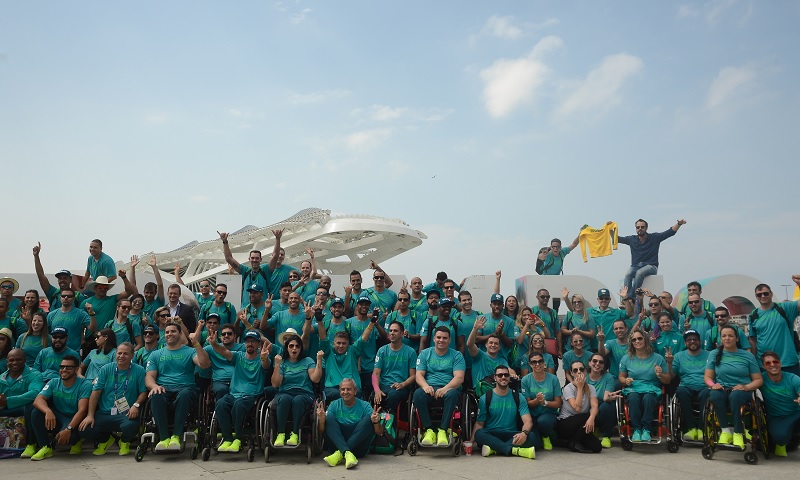
The 2016 Paralympic Games held in Rio de Janeiro, Brazil, help to drive social inclusion for persons with disabilities and enables marginalized people to demonstrate, front and centre, their abilities that surpass most people without a disability. The Paralympics help to build inclusive cities and make visible what persons with disabilities can achieve on a global scale.
The Games kicked off with its opening ceremonies on 7 September at Maracanã Stadium in Rio and continue until 18 September. The biggest Paralympic Games in history features 4,350 athletes from 170 countries, competing in 22 sports. The growing scale of the Games is changing the way societies think about disability and social inclusion. Host cities are able to transform their public spaces, businesses and transportation networks to be much more accessible and inclusive. This also affects sustainable tourism for host cities that enable barrier free access for all visitors.
Hosting the Paralympics also helps policymakers transform cities and countries to achieve the Sustainable Development Goals (SDGs) as well as comply with the Convention on the Rights of Persons with Disabilities (CRPD), which will celebrate the 10th anniversary of its adoption in 2017. Brazil signed, ratified and acceded to the CRPD in 2008 and has benefited in meeting its commitments to persons with disabilities by hosting the Games in Rio. Ahead of the Paralympic Games, major efforts were carried out to make Rio’s tourist attractions and sporting venues accessible with public spaces resurfaced with 4000m2 of accessible pavements and 5,831m2 of concrete.
The Paralympics also focuses on persons with disabilities working in media, putting them at the centre of international media coverage of the Games. In the UK, a growing number of the television staff and production teams programming and presenting the Games are persons with disabilities. The Paralympics demonstrates what a socially inclusive society can look like for a global audience.
To learn more about our work on persons with disabilities, visit un.org/disabilities.
Source & Copyright: UNDESA DSPD
 Welcome to the United Nations
Welcome to the United Nations